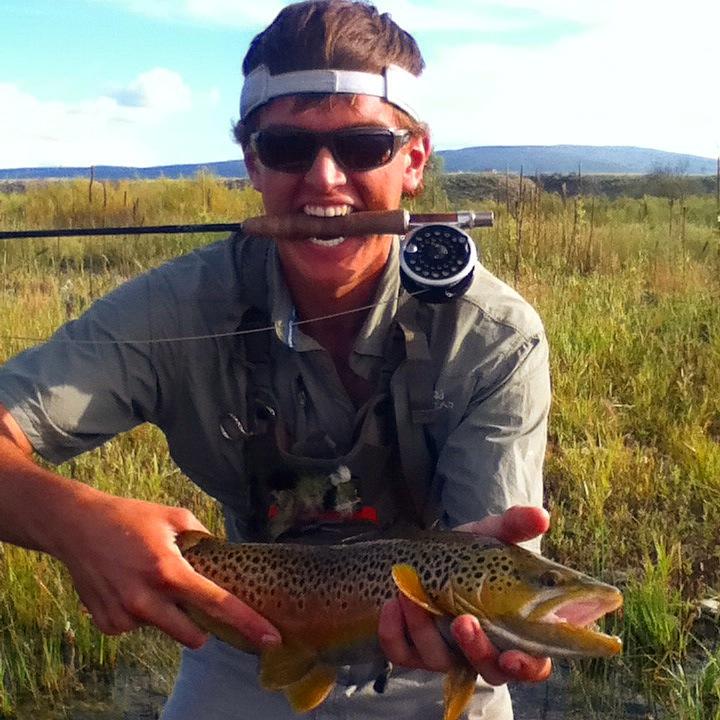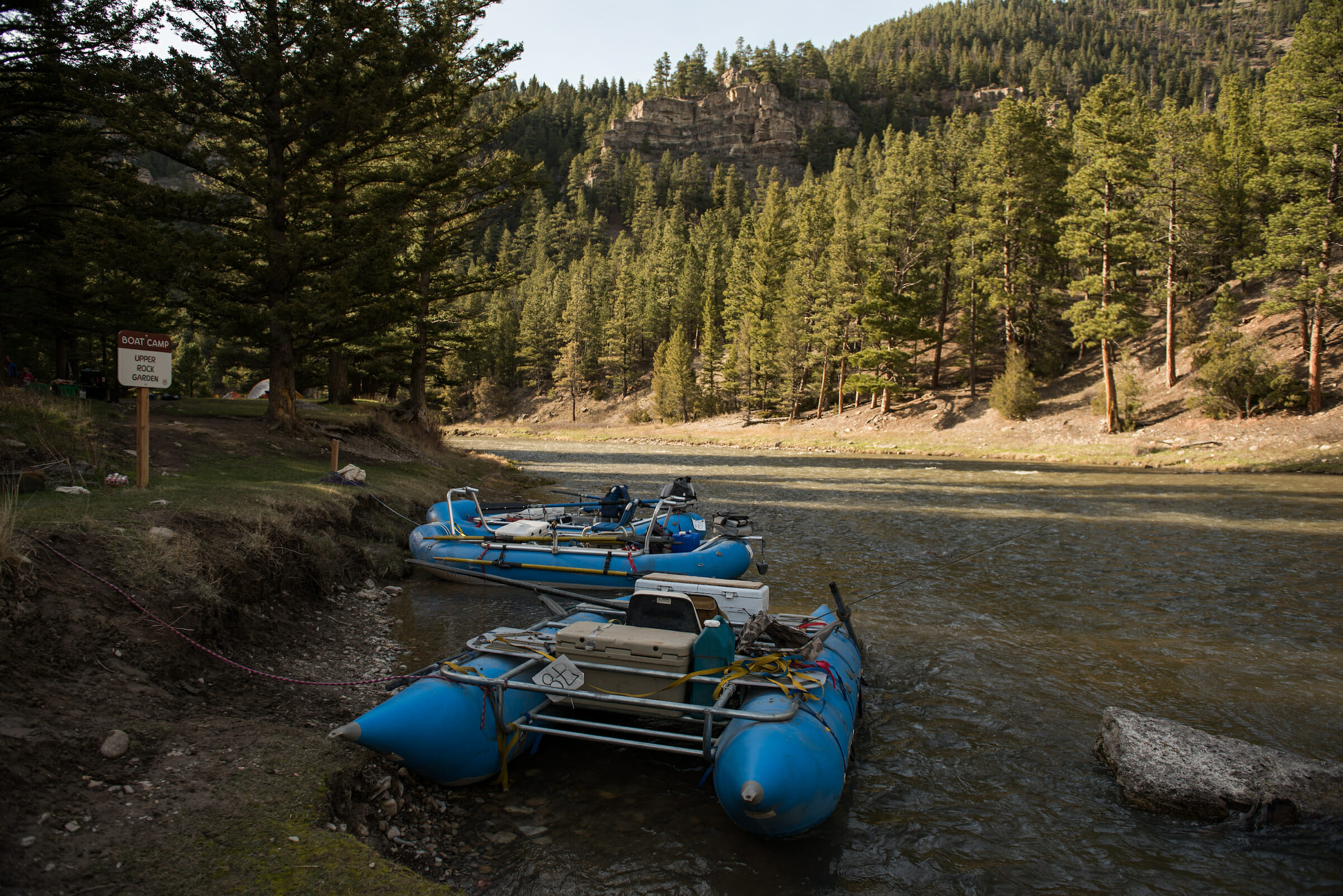By Joe Newman
There is a little run about 200 meters or so upstream of the confluence of Sheep Creek and the Smith River at Camp Baker, where the water rushes over a rock garden creating a melodic “glug glug glug.” This past summer I would stand on river left, jus
t below those rocks, casting drakes, beetles, caddis, and PMDs under the cut-bank opposite me. Not only does that hole hide some respectable rainbows, but the sound of the river is almost musical. It was during that time, fishing that hole, when I realized Sheep Creek has a definite voice.
 Unfortunately, that “voice” isn’t conscious; it isn’t aware of the threat just a few miles upstream. It can’t defend itself, it can’t tell us just how important it is to the fish, floaters, agriculture and wildlife. The job of being a conscious voice for rivers falls to fishermen and recreationalists, folks who love the water and the life it gives to the mountains. This summer it fell to me. I worked active outreach at Camp Baker, the head of the legendary 60-mile float from Baker to Eden Bridge. I had to be a voice for a threatened river.
Unfortunately, that “voice” isn’t conscious; it isn’t aware of the threat just a few miles upstream. It can’t defend itself, it can’t tell us just how important it is to the fish, floaters, agriculture and wildlife. The job of being a conscious voice for rivers falls to fishermen and recreationalists, folks who love the water and the life it gives to the mountains. This summer it fell to me. I worked active outreach at Camp Baker, the head of the legendary 60-mile float from Baker to Eden Bridge. I had to be a voice for a threatened river.
There is a particular attitude that must be assumed by anyone trying to reach people and communicate the necessity of river conservation. You have to balance your passion for cold, clear, pristine streams and fish with the necessary use of those streams by agriculture and industry. As I would circulate TU’s “Save the Smith” petition through Camp Baker, one of my opening lines was always “I’m not anti-mine, anti-miner, or anti-business,” and that’s true. I was raised smack in the middle of coal country in northwest Colorado. I like the conveniences brought about by modern technology. I recognize the need for gold, copper, lithium, platinum, silver, etc. But, and this is crucial, there is a time and place for the extraction of precious metals. Responsible mining is not just how you mine, but where you mine. There are places which can’t be measured in dollars.
Pointing out the benefits of a safe and healthy Smith should be enough to give anyone pause. A poisoned watershed wouldn’t just stifle tourism from floaters and fishermen, it would stunt agriculture, hurting herds of livestock and pasture land for miles and miles past the takeout. It would sterilize the river upon which the ecosystem relies. This is fact that has been well-researched. A 2005 study found that although 100 percent of hardrock mines promised their mining activity would not degrade the local water quality, within the first year of activity, 76 percent, more than 3 in 4 mines had adversely affected the watersheds.
One of the most prominent arguments from mine-advocates is that people who oppose the mine are universally tree-hugging, left-leaning, bleeding heart liberals from Missoula and cannot possibly understand the needs and benefits of industry returning to rural Montana. Well, although I may be a Grizzly in need of a good haircut and a razor, the majority of people I met at Camp Baker were not. They were ranchers, school teachers, civil and environmental engineers, retirees, newlyweds, doctors and stay-at-home parents. They came from all over the economic spectrum, were politically diverse, and above all, they refused classification. The people of the Smith River are not a monolith, they are a mish-mash of individuals with wildly varying ideas about the world, but somehow they all agree that a risk to the Smith was not just a concern for hippies.
These people care about this river. The voices speaking up in concern, promising protection to the river are as diverse as the river itself. Some roar, others whisper, but all are unified in their message. Not here. Not on Sheep Creek. The Smith is too important to risk. I was honored to lend my voice to the call.
Want to help? Write to the governor and tell him Montana’s Smith River is no place for a mine.



